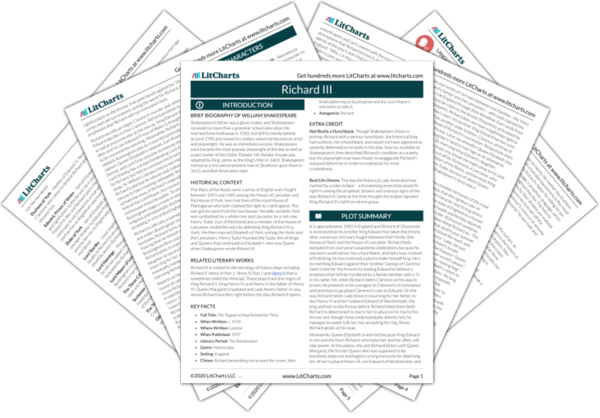Previous
The Boar
|
Previous
The Boar
|
The Clock Symbol Analysis
New! Understand every line of Richard III.
Read our
modern English translation.
|
Next
Literary Devices
|
The sun will not be seen to-day;
The sky doth frown and lour upon our army.
I would these dewy tears were from the ground.
Not shine to-day! Why, what is that to me
More than to Richmond? For the selfsame heaven
That frowns on me looks sadly upon him.
